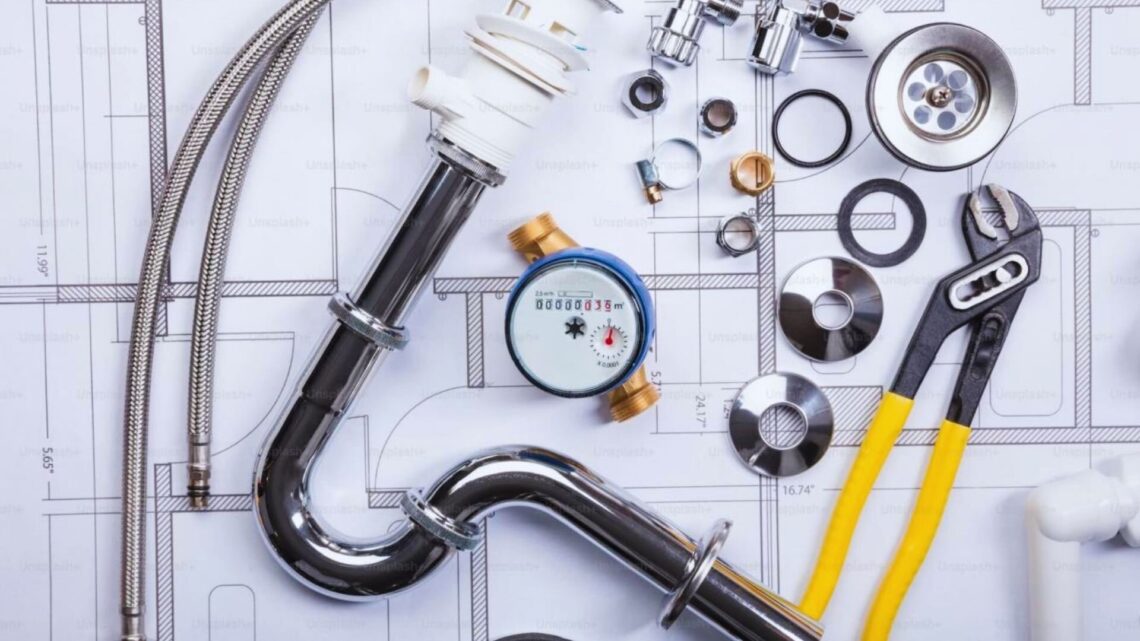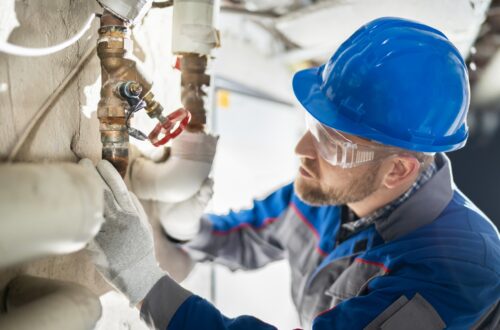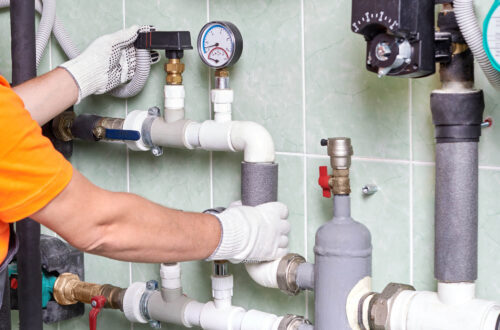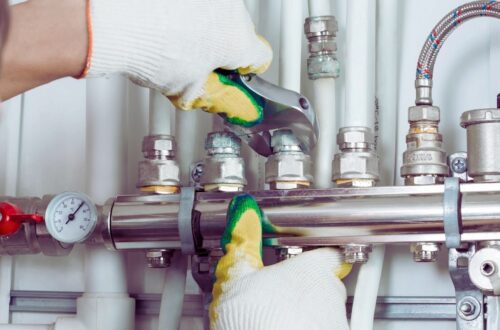Plumbing issues can arise when least expected, often leading to stress, frustration, and confusion about whether to tackle the problem yourself or call in a professional. Many homeowners are tempted to try fixing plumbing issues on their own, especially when it seems like a small problem that could be handled with a quick fix. However, the question is: when is it appropriate to attempt a DIY plumbing fix, and when should you seek the expertise of a professional plumber?
In this post, we’ll explore common plumbing problems and discuss when DIY methods are suitable and when it’s best to call a professional plumber for help.
DIY Plumbing: When It Makes Sense
Before diving into the decision-making process, it’s important to understand that not all plumbing issues require the intervention of a professional plumber. Some minor problems are simple enough for homeowners to manage on their own without requiring advanced skills.
Here are a few situations when DIY plumbing can work well:
-
Clogged Drains
Clogged drains are one of the most common plumbing problems faced by homeowners. Whether it’s in your kitchen sink or bathroom drain, a simple clog can often be solved using a few household tools. Start by using a plunger to clear the blockage. If this doesn’t work, try a drain snake or use a chemical drain cleaner. For minor clogs, these solutions are often enough to restore normal flow without the need for professional help.
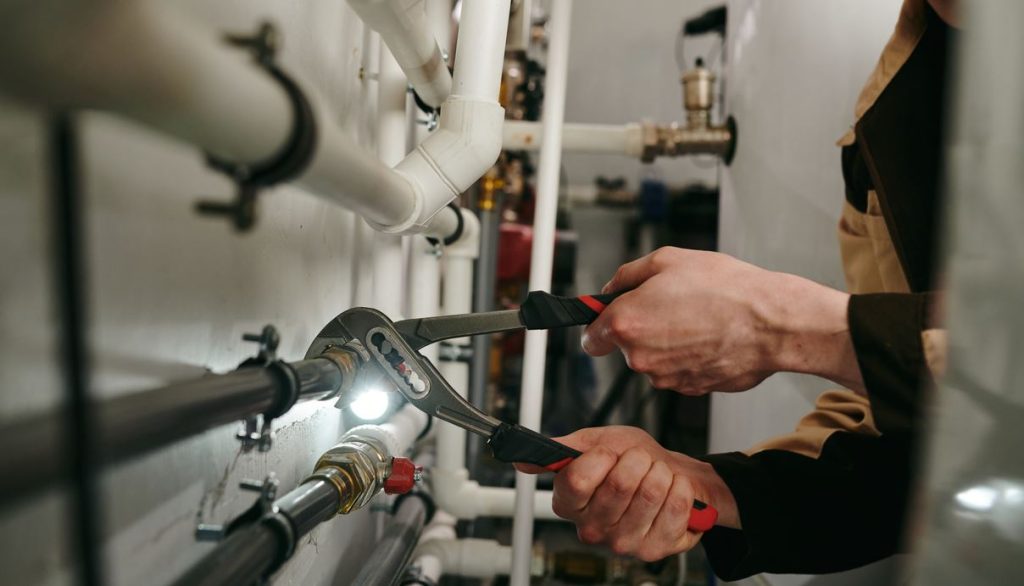
-
Leaky Faucets
A leaky faucet is not only annoying but can also waste a significant amount of water, leading to higher water bills. Thankfully, most faucet leaks can be fixed with minimal tools and basic know-how. You may need to replace a worn-out washer, O-ring, or cartridge, which can often be found at your local hardware store. The process involves disassembling the faucet, identifying the problem, and replacing the faulty parts.
-
Running Toilet
A running toilet is another common issue that many homeowners can address on their own. Typically, the problem lies with a faulty flapper, fill valve, or float, which can be easily replaced. Once you diagnose the issue, you can usually fix it in under an hour with just a few basic tools. Be sure to turn off the water supply before beginning the repair.
-
Fixing Small Pipe Leaks
If you notice a small leak in a pipe or a joint, you can sometimes fix it yourself with some basic plumbing skills. Pipe sealant or tape can temporarily stop the leak until you can replace the affected section of the pipe. However, this should only be a temporary fix if you are uncertain about the damage, and a professional plumber should be consulted if the leak worsens.
When to Call a Professional Plumber
There are certain plumbing problems that should never be attempted as a DIY project. Attempting complex or hazardous plumbing repairs without the right expertise can lead to further damage, higher repair costs, and even health and safety risks. Here are some situations when it’s best to call a professional plumber:
-
Major Pipe Leaks or Bursts
While small leaks can sometimes be patched with DIY methods, a burst pipe or a significant leak in the plumbing system requires immediate professional attention. Not only can these leaks cause extensive water damage to your home, but they can also compromise the structural integrity of the building. If you notice water pooling around the foundation or a significant loss of pressure, don’t attempt to fix it yourself—contact a plumber immediately.
-
Water Heater Issues
Water heaters are complex appliances that require specific knowledge and expertise to repair. If your water heater is malfunctioning—whether it’s failing to produce hot water, leaking, or making strange noises—it’s best to leave the repair to a professional plumber. Attempting to fix a water heater on your own can be dangerous, as they involve electrical components or gas lines. A certified plumber can safely troubleshoot the issue and replace any faulty parts.
-
Sewer Line Problems
Issues with your sewer line, such as frequent backups or slow drainage, require immediate professional attention. Sewer line problems are not only difficult to detect but also hazardous, as they can lead to sewage contamination, health risks, and significant damage to your property. A professional plumber will have the proper tools and training to accurately diagnose the issue and repair or replace the damaged sewer line safely.
-
Plumbing Installation Projects
While small repairs and fixes can often be handled by a DIYer, larger plumbing installations, such as installing a new toilet, sink, or shower, require the expertise of a professional. Improper installation can result in leaks, water damage, and malfunctioning fixtures. A plumber will have the knowledge to install your new plumbing system according to code, ensuring that everything works properly from the start.
-
Gas Line Issues
If your plumbing system includes gas lines, such as those used for heating or hot water, do not attempt to repair them yourself. Gas leaks are extremely dangerous and can lead to serious health hazards or even explosions. If you suspect a gas leak or are having issues with your gas line, immediately contact a licensed professional plumber who is trained to handle gas plumbing safely.
When it comes to plumbing, DIY projects can save you money and time, especially for small issues that are easy to fix. However, for more complicated or dangerous plumbing issues, it’s crucial to call a professional plumber. A trained expert will ensure that your plumbing system is fixed safely, effectively, and in compliance with local building codes.
Remember, if you’re ever in doubt, it’s always best to err on the side of caution and hire a professional plumber to tackle the problem. This will not only give you peace of mind but will also help avoid costly repairs down the road.
